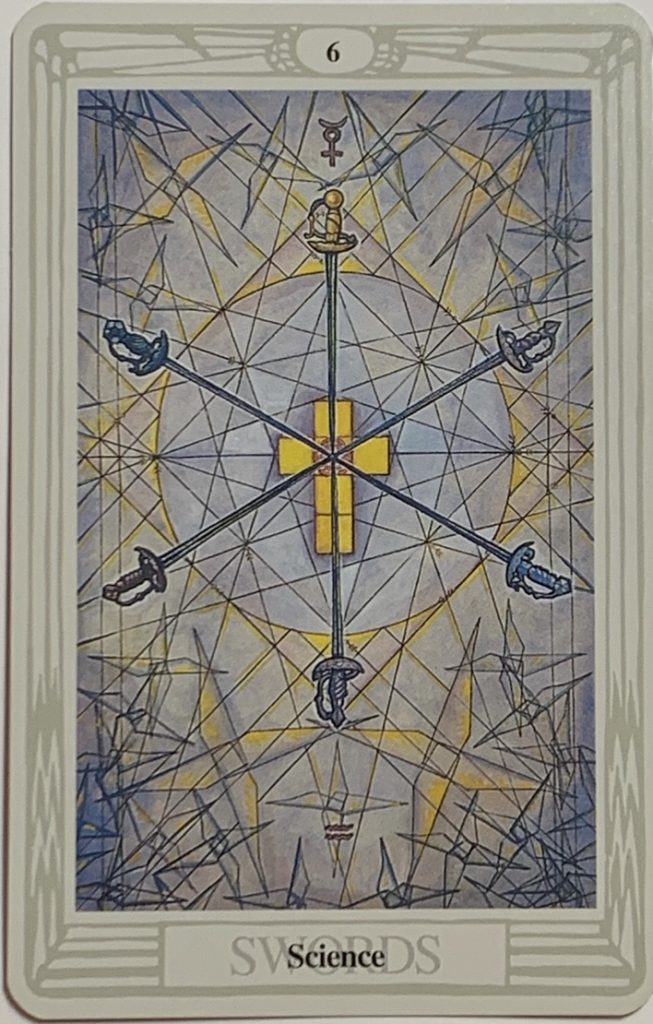
The Six of Swords, also known as the Lord of Science, symbolizes transition and moving forward. It represents leaving behind the familiar and venturing into the unknown, which is essential for personal growth and development. The card suggests that change may be difficult but leads to greater clarity and a renewed acceptance of life’s constant evolution.
In tarot, the Six of Swords often depicts a boat moving across water, symbolizing the journey from turmoil to calmer waters. This journey is not just physical but also mental, as the card is associated with the element of air, which represents the mind and intellect. The presence of swords in the boat indicates that this transition is not without its challenges, but it is necessary for progress.
The card advises approaching problems rationally and objectively, with emotional swings better curbed than indulged. It encourages all-embracing thinking, science, and research as tools to find new solutions to difficulties. The Six of Swords is a reminder that success comes after anxiety and trouble and that the search for truth is a rite of passage.
When the Six of Swords appears reversed, it indicates a reluctance to make necessary changes. It is a call to push beyond your comfort zone and evolve as a person, even when it’s uncomfortable.
The keywords associated with the Six of Swords include Mercury in Aquarius, analytical skills, the ability to unite thoughts, and objectivity. The card advises trusting your insights and communicating in a way that others understand. It suggests that understanding connects many different aspects of life and that the rose of knowledge blossoms in the heart.
The Six of Swords is a powerful symbol of transition, growth, and the pursuit of knowledge. It encourages us to embrace change, use our intellect, and move forward with determination, knowing that the journey itself is a vital part of our personal development.
Summary Points
- Transition: You’re in a phase of change, leaving behind familiar ground and moving towards something new.
- Healing: Past emotional wounds are mending, making space for clarity and renewed energy.
- Rationality: Prioritize logic and objectivity in your problem-solving and decision-making.
- Growth: This journey, while potentially uncomfortable, is essential for your personal and mental development.
Actions:
- Embrace the unknown: Welcome change, even with its potential discomfort. Recognize the potential for growth it offers.
- Seek clarity: Analyze situations with a focus on rational thinking. Don’t let turbulent emotions dictate your responses.
- Let go of the past: Release emotional baggage that no longer serves you. This frees up mental space for new perspectives.
- Reflect on your patterns: Examine your beliefs and habits. Consider where a shift in perspective might be beneficial.
